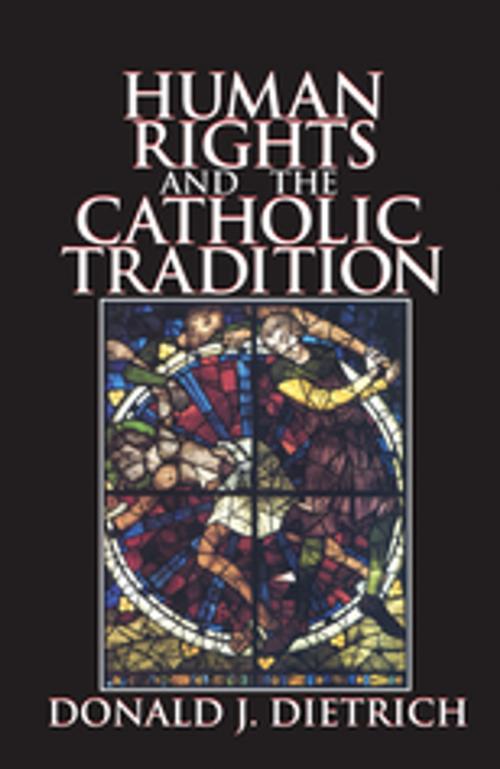Human Rights and the Catholic Tradition
Nonfiction, Religion & Spirituality, Christianity, Denominations, Catholic, Catholicism, Social & Cultural Studies, Political Science| Author: | Donald Dietrich | ISBN: | 9781351514323 |
| Publisher: | Taylor and Francis | Publication: | July 28, 2017 |
| Imprint: | Routledge | Language: | English |
| Author: | Donald Dietrich |
| ISBN: | 9781351514323 |
| Publisher: | Taylor and Francis |
| Publication: | July 28, 2017 |
| Imprint: | Routledge |
| Language: | English |
From the French Revolution to Vatican II, the institutional Catholic Church has opposed much that modernity has offered men and women constructing their societies. This book focuses on the experiences of German Catholics as they have worked to engage their faith with their culture in the midst of the two world wars, the barbarism of the Nazi era, and the uncertainties and conflicts of the post-World War II world.German Catholics have confronted and challenged their Church's anti-modernism, two lost wars, the Weimar Republic, the Nazi Third Reich, the Cold War, German reunification and the impulses of globalization. Catholic theologians and those others nurtured by Catholicism, who resisted Nazism to create their own private spaces, developed a personal and existential theology that bore fruit after 1945. Such theologians as Karl Rahner, Johannes Metz, and Walter Kasper, were rooted in their political experiences and in the renewal movement built by those who attended Vatican II. These theologians were sensitive to the horrors of the Nazi brutalization, the positive contributions of democracy, and the need to create a Catholicism that could join the conversation on human rights following World War II. This dialogue meant accepting non-Catholic religious traditions as authentic expressions of faith, which in turn required that the sacred dignity of every man, woman, and child had to be respected. By the twenty-first century, Catholic theologians had made furthering a human rights agenda part of their tradition, and the German contribution to Catholic theology was crucial to that development. The current Catholic milieu has been forged through its defensive responses to the Enlightenment, through its resistance to ideologies that have supported sanctioned murder, and through an extensive dialogue with its own traditions.In focusing on the German Catholic experience, Dietrich offers a cultural approach to the study of the religious and ethical issues that ground the hum
From the French Revolution to Vatican II, the institutional Catholic Church has opposed much that modernity has offered men and women constructing their societies. This book focuses on the experiences of German Catholics as they have worked to engage their faith with their culture in the midst of the two world wars, the barbarism of the Nazi era, and the uncertainties and conflicts of the post-World War II world.German Catholics have confronted and challenged their Church's anti-modernism, two lost wars, the Weimar Republic, the Nazi Third Reich, the Cold War, German reunification and the impulses of globalization. Catholic theologians and those others nurtured by Catholicism, who resisted Nazism to create their own private spaces, developed a personal and existential theology that bore fruit after 1945. Such theologians as Karl Rahner, Johannes Metz, and Walter Kasper, were rooted in their political experiences and in the renewal movement built by those who attended Vatican II. These theologians were sensitive to the horrors of the Nazi brutalization, the positive contributions of democracy, and the need to create a Catholicism that could join the conversation on human rights following World War II. This dialogue meant accepting non-Catholic religious traditions as authentic expressions of faith, which in turn required that the sacred dignity of every man, woman, and child had to be respected. By the twenty-first century, Catholic theologians had made furthering a human rights agenda part of their tradition, and the German contribution to Catholic theology was crucial to that development. The current Catholic milieu has been forged through its defensive responses to the Enlightenment, through its resistance to ideologies that have supported sanctioned murder, and through an extensive dialogue with its own traditions.In focusing on the German Catholic experience, Dietrich offers a cultural approach to the study of the religious and ethical issues that ground the hum















